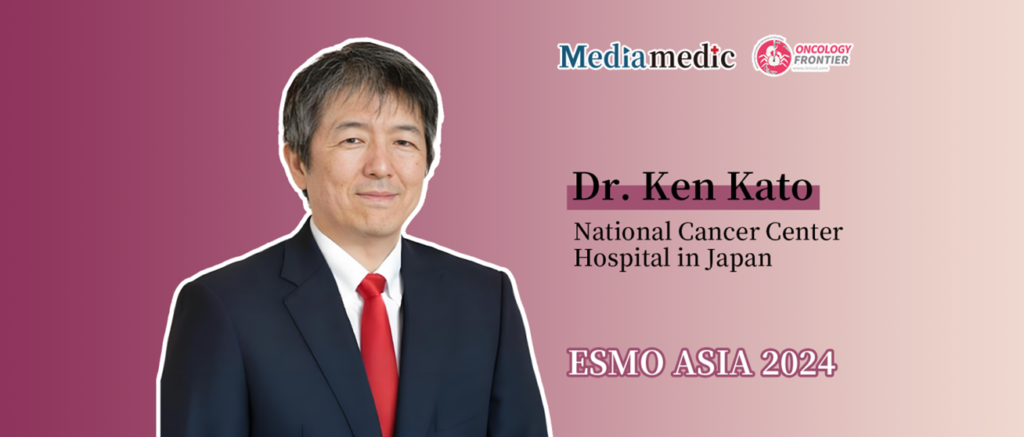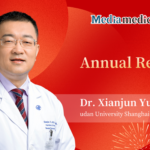
Editorial Note: The global multicenter, randomized, double-blind phase III RATIONALE-305 trial, led by Professor Ruihua Xu as the Global Leading PI, demonstrated that tislelizumab combined with chemotherapy significantly improves overall survival (OS) compared to placebo plus chemotherapy in patients with advanced gastric cancer. This study offers a new first-line treatment option for patients with advanced gastric cancer. At the 2024 European Society for Medical Oncology Asia Congress (ESMO ASIA 2024), the analysis of patient-reported outcomes (PROs) for Asian participants was presented. Oncology Frontier spoke with Dr. Ken Kato from the National Cancer Center Hospital in Japan for his insights.Oncology Frontier : During the conference, you presented some results from the RATIONALE-305 study. Could you provide an overview of the study and its key findings?
Dr. Ken Kato: The RATIONALE-305 trial demonstrated that first-line treatment with chemotherapy combined with the anti-PD-1 antibody tislelizumab significantly improves overall survival (OS) and progression-free survival (PFS) compared to chemotherapy with placebo in patients with advanced gastric or gastroesophageal junction adenocarcinoma. These findings are consistent with the efficacy observed for other anti-PD-1 antibodies, such as nivolumab and pembrolizumab. The results of this trial have already been published in related literature.
At this ESMO ASIA meeting, I presented an analysis of patient-reported outcomes (PROs) for the Asian subgroup. The PRO data indicated that patients in the tislelizumab group experienced improvements in pain and/or discomfort. These findings provide additional support for the clinical benefit of first-line chemotherapy combined with tislelizumab, highlighting its potential to improve the quality of life for patients with advanced gastric cancer.
Oncology Frontier: How does the toxicity profile of immunotherapy combined with chemotherapy compare to chemotherapy alone in clinical practice? How should we manage these toxicities?
Dr. Ken Kato: We are now well-acquainted with the effects of combining chemotherapy with PD-1 inhibitors in patients with gastric and gastroesophageal cancers. The toxicity profile of immune checkpoint inhibitors is entirely distinct from that of chemotherapy alone. For instance, patients may experience skin toxicities, endocrine dysfunction, and, in some cases, immune-related pneumonitis. However, these adverse events are generally manageable with the use of corticosteroids or other immunosuppressive agents.
In most cases, we can effectively handle the toxicities of immune checkpoint inhibitors in daily clinical practice. The key lies in early recognition and proactive management of these side effects, ensuring optimal patient care while maximizing the therapeutic benefits of the treatment combination.
Oncology Frontier: What is the current status of research on biomarkers for immune checkpoint inhibitors? How do we identify patients who are likely to benefit from immunotherapy?
Dr. Ken Kato: Most ongoing clinical trials indicate that anti-PD-1 antibodies provide clinical benefits regardless of PD-L1 status, though their efficacy is more pronounced in PD-L1-positive patients. Patients with low PD-L1 expression derive less benefit from anti-PD-1 antibodies.
Regardless of the evidence for the PD-L1 low-expression population, we can identify suitable candidates for PD-L1 immune checkpoint inhibitors through immunohistochemical analysis using the Combined Positive Score (CPS).
In the future, combining immunotherapy with novel agents and other therapeutic regimens will likely improve efficacy, even in patients with low PD-L1 expression. This remains a significant area of hope and focus for future advancements.


